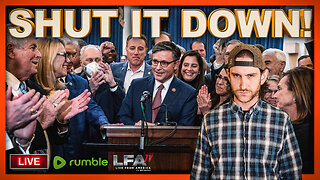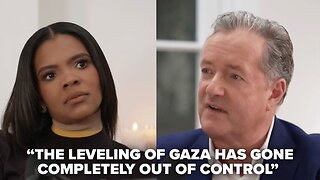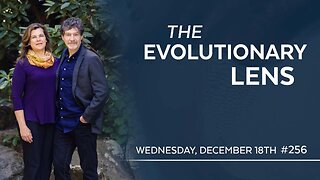Premium Only Content

Study finds how long your first date should be
Planning a first date? Make sure you have an escape route. More than four in five Americans believe dinner dates are the hardest to get away from, especially if it isn’t going well.
A survey examined the experiences of 2,000 actively dating Americans over the age of 21 and revealed that while more than half (56%) tend to go for dinner and a movie as a first date, other top choices are more flee-friendly.
Half of respondents prefer casual drinks, followed by coffee (43%) or going to a market or picnic (34%).
On average, a first date should last a little less than three hours (2.72), and it takes respondents about four dates to feel comfortable with that person.
Almost one-third (31%) of respondents feel the least comfortable part about going on a first date is the nerves. To do away with those first date jitters, daters are sipping on a favorite drink (57%), wearing their favorite outfit or accessories (54%) and choosing a familiar location (44%).
Conducted by OnePoll on behalf of Canada Dry, results showed that although having a drink in hand may soothe some anxieties, there is always a limit — almost half (46%) of respondents find drinking too much on a first date to be a turn-off.
If their date drank too much, 32% of respondents would speak up and address it during the date, while 28% would simply end the date and leave and 15% would write off a second date entirely.
Nevertheless, more than three-quarters (76%) of respondents are likely to base a love connection on whether their date has the same drink preferences.
Key indicators that a first date went well include a text or call immediately following the date (63%), a goodnight kiss (56%) and even extending the date past the expected time (51%).
But on the flip side, top signs of a sour first date include being “ghosted” afterward (65%), making an excuse to leave the date early (65%) and awkward moments of silence (48%).
The absence of a goodnight hug or kiss (39%), still feeling nervous after the date ends (35%) and splitting the bill (21%) also hint that a first date didn’t go so well.
“First dates are nerve-wracking — will you hit it off? Will this be the worst date ever? With so many questions swirling around, it’s no surprise that daters are looking for ways to make themselves more comfortable,” shared Lindsey Metselaar, host of the popular millennial dating podcast, We Met at Acme. “By keeping your favorite drink in hand and focusing on the positive 'what ifs,' daters can keep the nerves down and the comfort high.”
Only 16% of respondents haven’t been on a first date gone wrong. Though daters have been slightly more likely to blame a date for ruining a first date than themselves (30% vs 24%), 31% admit they’ve been on both sides.
Of the respondents who claim they botched a first date, most (63%) felt they were too nervous.
Some felt they shattered their chances by spending too much time on their phone (48%), drinking too much alcohol (41%) and even making too many jokes (31%).
On the other hand, those who claim their date was to blame encountered people who didn’t look like their photos (58%) and inappropriate comments (57%).
Other first date offenses include arriving late (54%) or leaving early (41%), as well as drinking too much alcohol (35%), spending too much time on their phone (28%) and even talking about themselves the whole date (17%).
Nine in 10 respondents are familiar with the term “situationship,” though only 44% have experienced one.
Another 84% of respondents recognize the term “rizz”, someone’s ability to flirt and charm, and 44% of respondents have either “ghosted” someone or fallen victim to it.
In fact, the average person will hold onto hope for a little more than four days (4.36) before accepting the fact that they’ve been ghosted.
Survey methodology:
This random double-opt-in survey of 2,000 21+ Americans who are actively dating was commissioned by Canada Dry between June 20 and June 28, 2023. It was conducted by market research company OnePoll, whose team members are members of the Market Research Society and have corporate membership to the American Association for Public Opinion Research (AAPOR) and the European Society for Opinion and Marketing Research (ESOMAR).
-
 1:22
1:22
SWNS
2 days agoResting gift face? Most fake their excitement during the holidays
151 -
 2:04:11
2:04:11
Melonie Mac
4 hours agoGo Boom Live Ep 32! Soul Reaver Remastered!
16.5K4 -
 39:11
39:11
Sarah Westall
2 hours agoDigital Slavery and Playing with Fire: Money, Banking, and the Federal Reserve w/ Tom DiLorenzo
28K1 -
 DVR
DVR
2 MIKES LIVE
6 hours ago2 MIKES LIVE #157 ILLEGALS, PROTESTORS AND DRONES!
16.9K1 -
 1:01:03
1:01:03
LFA TV
1 day agoTHE LATEST SPENDING BILL IS AN ABOMINATION! | UNGOVERNED 12.18.24 5pm EST
23K28 -
 1:43:34
1:43:34
Redacted News
6 hours agoBREAKING! WARMONGERS PUSHING TRUMP TO LAUNCH PRE-EMPTIVE WAR WITH IRAN | Redacted News
125K222 -
 1:00:26
1:00:26
Candace Show Podcast
5 hours agoPiers Morgan x Candace Owens | Candace Ep 123
70.7K184 -
 2:06:51
2:06:51
Darkhorse Podcast
8 hours agoThe 256th Evolutionary Lens with Bret Weinstein and Heather Heying
55.8K25 -
 3:08:08
3:08:08
Scammer Payback
6 hours agoCalling Scammer Live
33.5K3 -
 1:21:25
1:21:25
Mally_Mouse
9 hours agoLet's Yap About It - LIVE!
82K9